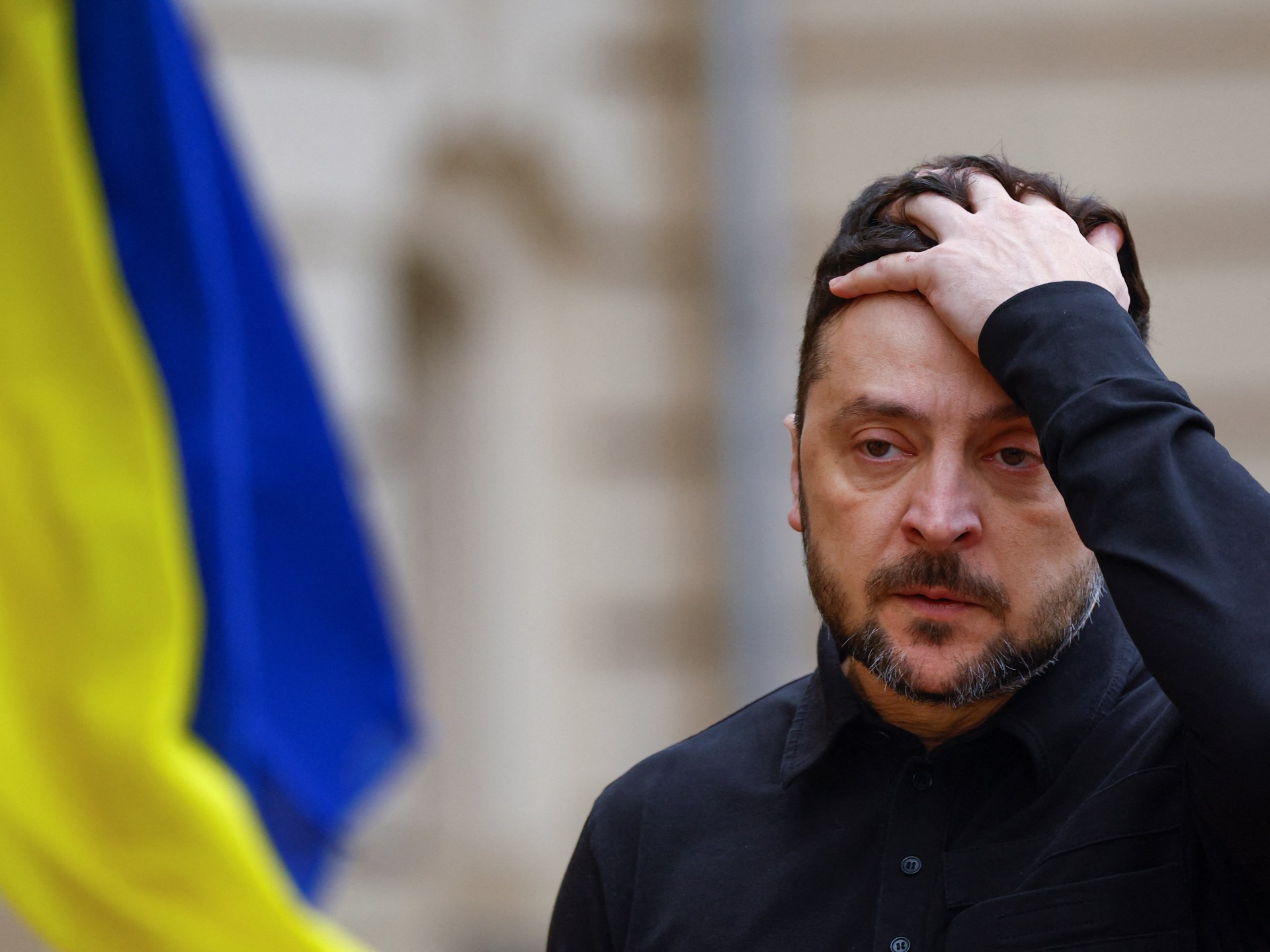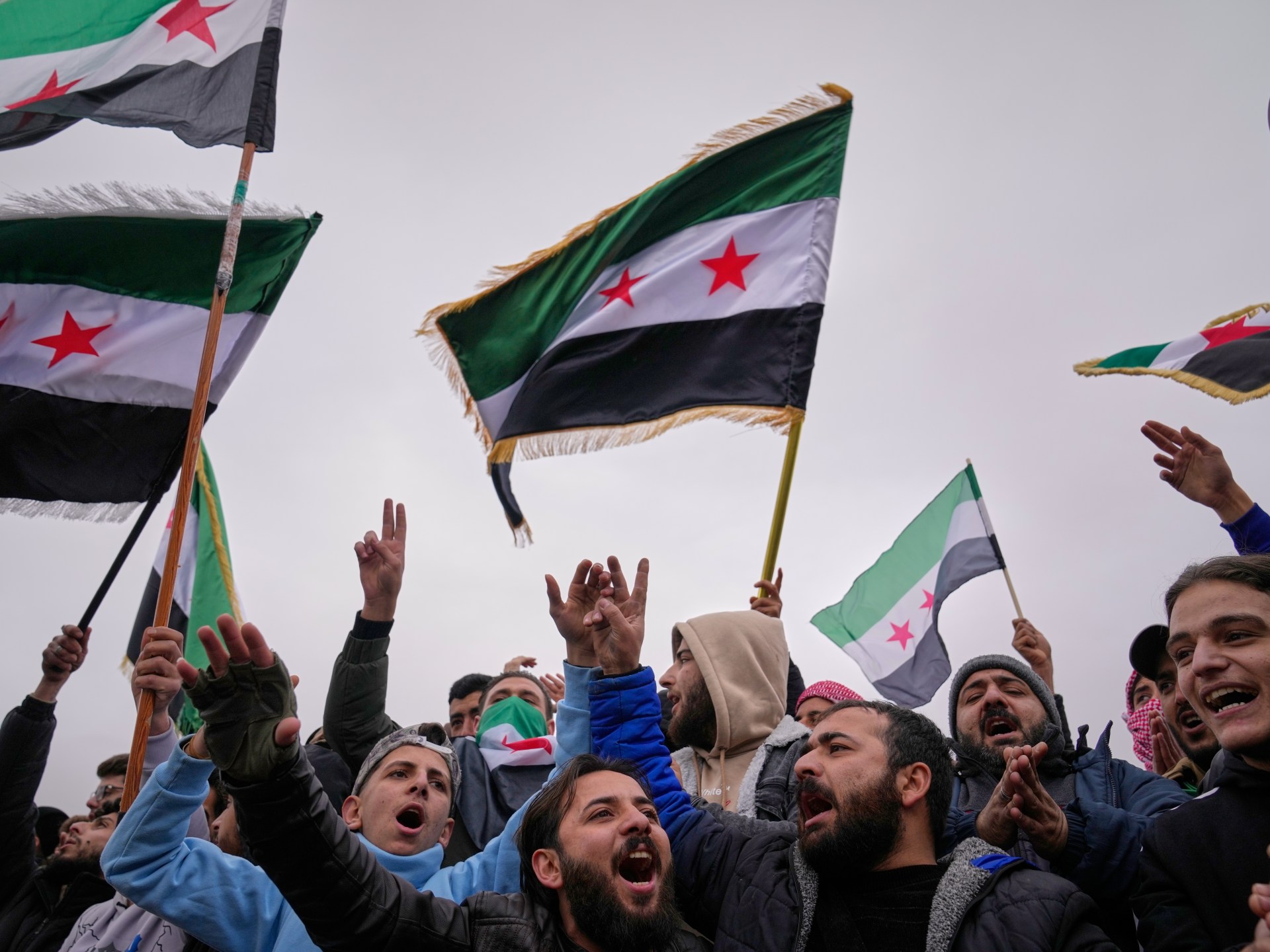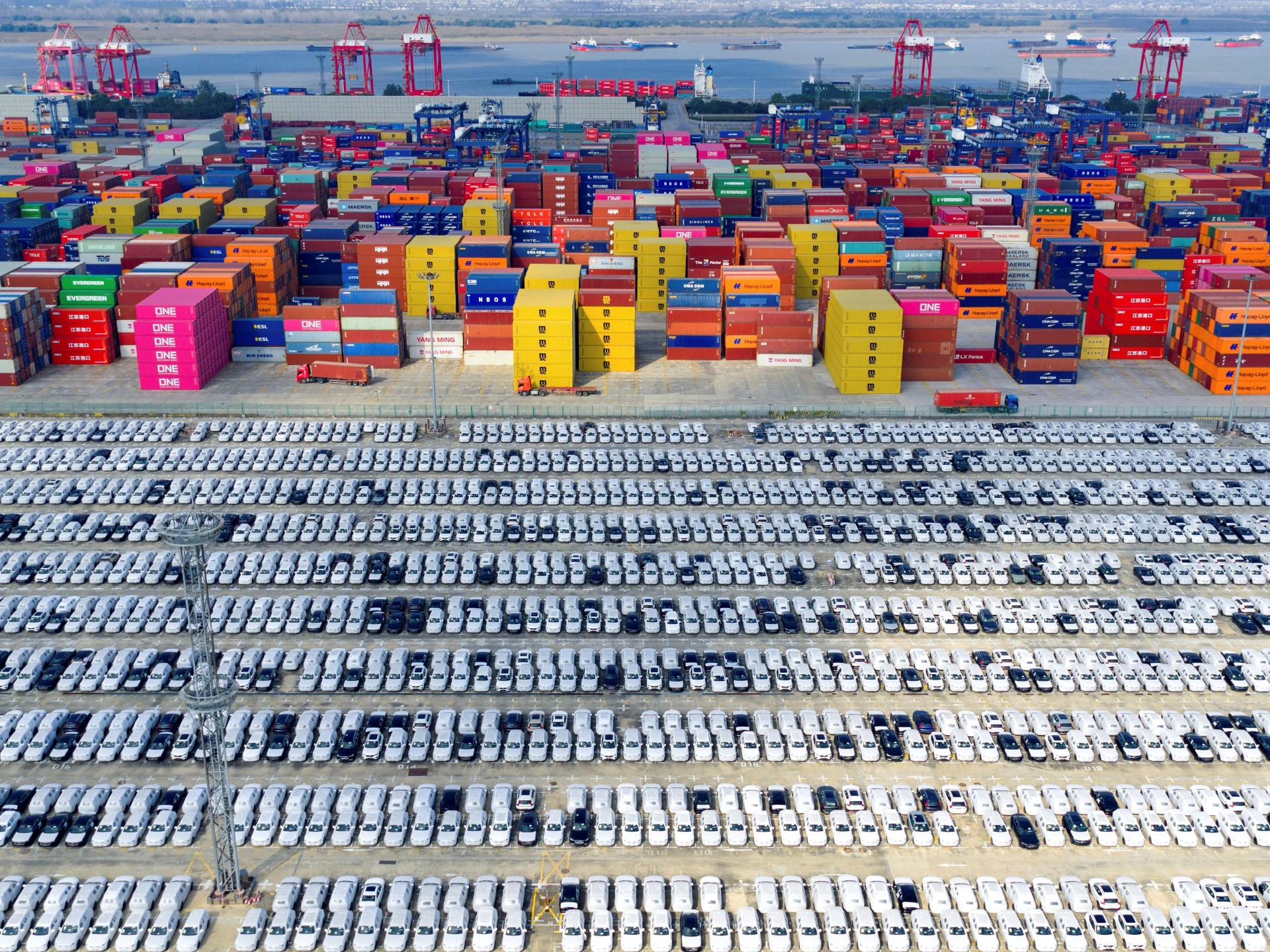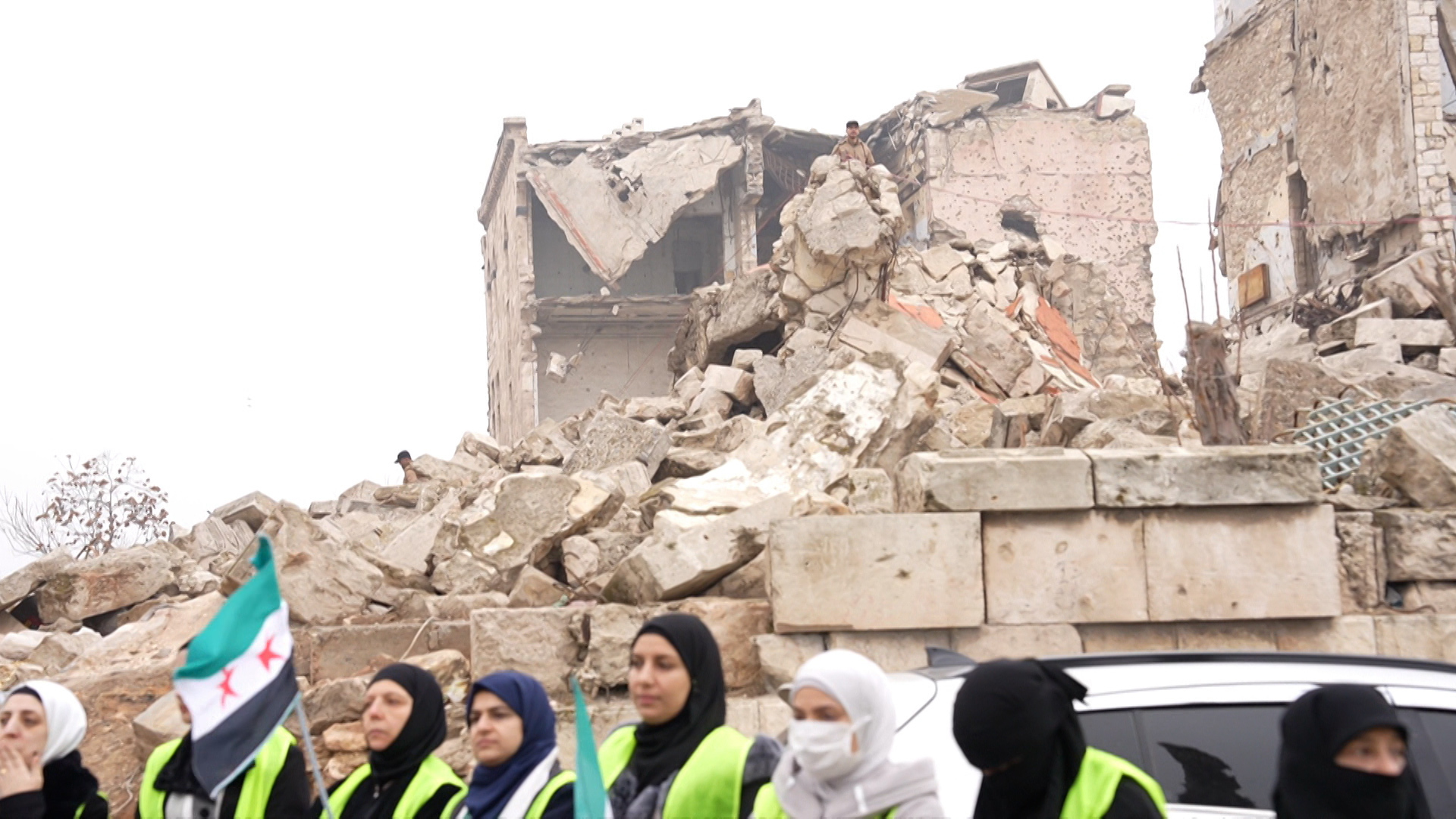Benin’s President Patrice Talon has claimed that the situation is “completely under control” in the Western African nation after the government thwarted an attempted coup on Sunday.
Calm returned on Monday to Cotonou, Benin’s administrative centre, after sporadic gunshots were heard across the city throughout Sunday, but a heavy presence of soldiers remained on the streets.
Recommended Stories
list of 3 itemsend of list
Early on Sunday, soldiers calling themselves the Military Committee for Refoundation declared on state television they had toppled Talon, who has been in power since 2016, prompting a swift response from loyal army forces, joined by air attacks and troop deployments from neighbouring Nigeria.
Talon first took office in 2016 and was re-elected in 2021.
Several West African nations have faced coups in recent years, including Benin’s northern neighbours, Niger and Burkina Faso, as well as Mali, Chad, Guinea and, most recently, Guinea-Bissau, where soldiers seized power last month after disputed election results.
Here is how the failed coup attempt unfolded:
Who was behind the coup attempt?
A group of soldiers stormed the national television on Sunday morning, claiming to have seized power.
Eight soldiers appeared in a broadcast announcing the removal of President Talon, dissolution of the government and suspension of all state institutions.
The soldiers said Lieutenant Colonel Pascal Tigri had been appointed president of the military committee.
In their televised statement, the coup plotters mentioned the deteriorating security situation in northern Benin “coupled with the disregard and neglect of our fallen brothers-in-arms”.
How was the coup foiled?
In the afternoon, Interior Minister Alassane Seidou said in a statement that Benin’s armed forces had foiled the attempted coup.
“A small group of soldiers launched a mutiny with the aim of destabilising the country and its institutions,” said Seidou.
“Faced with this situation, the Beninese Armed Forces and their leadership maintained control of the situation and foiled the attempt,” he added.
Nigerian President Bola Tinubu confirmed deploying fighter jets and ground troops to Benin to help foil the coup attempt. His office said Nigeria’s military intervened after Talon’s government issued two requests for help, including for “immediate Nigerian air support”.
Tinubu praised Nigeria’s armed forces for standing “as a defender and protector of constitutional order in the Republic of Benin on the invitation of the government”.
Later that evening, Talon came on state television to confirm Seidou’s announcement, promising to punish those responsible.
“I would like to assure you that the situation is completely under control and therefore invite you to calmly go about your activities starting this very evening,” the president said.
The rapid mobilisation of forces loyal to the government “allowed us to thwart these adventurers”, Talon said in his remarks.
“This treachery will not go unpunished,” he added.
Were there any arrests made?
A government spokesperson, Wilfried Leandre Houngbedji, said 14 people had been arrested in connection with the coup attempt, without providing any details.
It remains unclear if Lieutenant Colonel Tigri, the coup leader, had been apprehended.
Were there any casualties?
President Talon, in his address, expressed his condolences “to the victims of this senseless adventure, as well as to those still being held by fleeing mutineers”.
“I assure them that we will do everything in our power to find them safe and sound,” he added.
He did not provide any further details.
What was the reaction to the coup?
African Union Commission Chairperson Mahmoud Ali Youssouf, in a statement, “strongly and unequivocally condemns the military coup attempt” in Benin, stressing that any form of military interference in political processes is “a grave violation of the fundamental principles and values” of the AU.
The Economic Community of West African States (ECOWAS) in a statement also said it strongly condemned the attempted military coup and would support efforts by the government to restore order.
ECOWAS said it has ordered the deployment of a regional troop comprising personnel from Nigeria, Sierra Leone, Ivory Coast and Ghana to support Benin’s army to “preserve constitutional order and the territorial integrity of the Republic of Benin”.
United Nations Secretary-General Antonio Guterres condemned the attempted coup, saying it would “further threaten the stability of the region”.
What you need to know about Benin
Benin has a diverse population of approximately 14 million.
Despite a history of coups following its independence from France in 1960, the tiny country has enjoyed uninterrupted democratic rule in the past two decades.
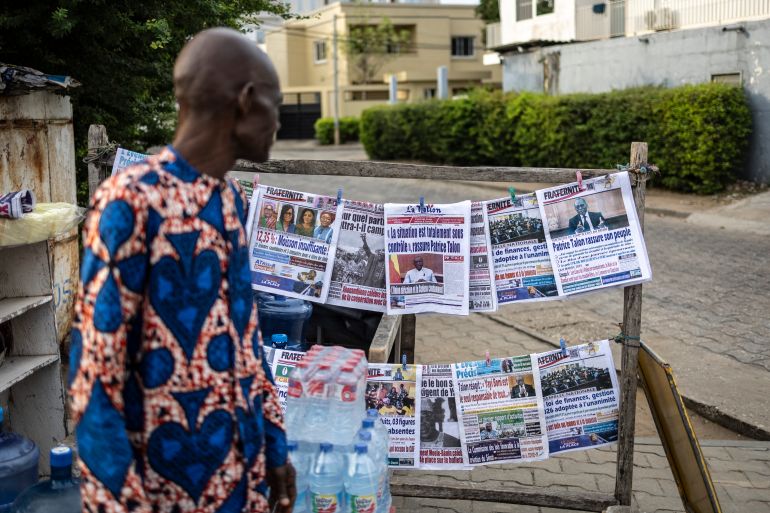
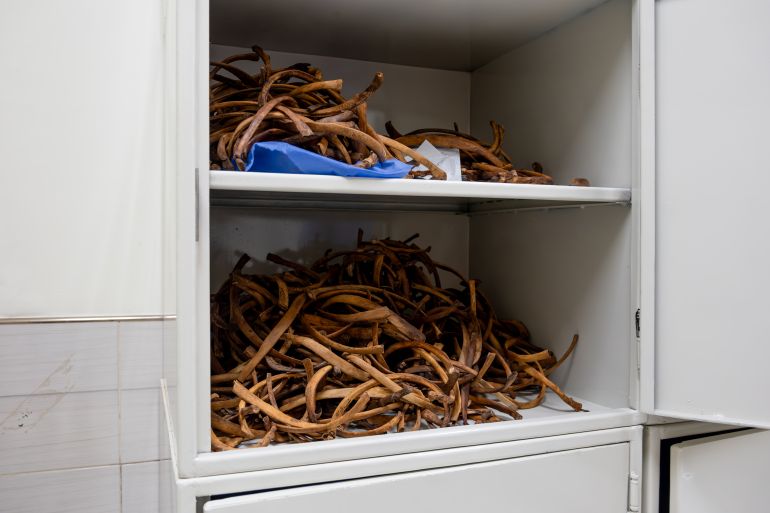
![Dr Anas Al Hourani is a forensic odontologist - meaning he studies teeth to help identify a person's remains. [Harriet Tatham/Al Jazeera]](https://i0.wp.com/www.aljazeera.com/wp-content/uploads/2025/12/DrAlHourani-1765187120.jpg?w=696&ssl=1)


![It’s believed this victim died from a gunshot to the head. [Harriet Tatham/Al Jazeera]](https://i0.wp.com/www.aljazeera.com/wp-content/uploads/2025/12/SkullGunshot-1765187511.jpg?w=696&ssl=1)
